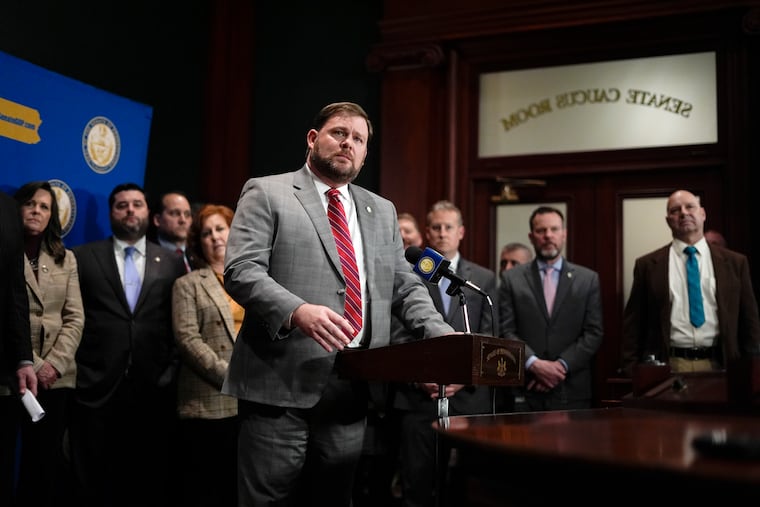State Senate Republicans must step up for all Pennsylvanians | Editorial
The state budget is six weeks late, and outside Senate GOP leadership, everyone else has done their part to get it across the finish line.

The GOP-controlled state Senate is scheduled to meet on Tuesday to vote on a budget proposal that has received no public scrutiny.
Whether it includes sufficient funding for public transportation, healthcare, and education is a mystery. Whether it will include a substantial tax on the extractive, so-called skill game machines that have proliferated across the Keystone State is unknown.
What we do know is that the state budget is now six weeks late, and that outside Senate Republican leadership, everyone else has done their part to get it across the finish line.
It is long past time to move forward. Not with a six-month stopgap proposal that some Republican lawmakers have floated, but a truly substantive plan that funds all of the essential services Pennsylvanians rely on.
That includes SEPTA, the funding of which, along with other state transit agencies, has proven to be a sticking point in the budget negotiations. It is true that, like many large public agencies, SEPTA has made some costly mistakes in the past. But it is even truer that SEPTA operates on the leanest budget of any similar-sized transit agency, and that people in and around Philadelphia benefit from SEPTA’s service — even if they never step foot on a bus, train, or trolley — through its economic and environmental impact.
» READ MORE: There is no room for error — Harrisburg must fund public transit in Pa. now | Editorial
SEPTA has also done considerable work to assuage concerns about both its financials and the quality of its service. Citations for fare evasion and smoking are up. Crime is down. The agency’s efficiency initiative has already produced tens of millions in annual savings. It has shrunk its funding request from $240 million in 2023 to $213 million in 2025, despite significant inflation.
One Republican, State Sen. Joe Picozzi from Northeast Philadelphia, has proposed codifying many of these policy changes. If his colleagues are concerned about SEPTA coming back for more money in the future, they can pass his bills alongside the budget.
Some have suggested using SEPTA’s stabilization fund to forestall cuts (which currently sits at about a quarter of the agency’s $1.7 billion operating budget). However, without that fund’s cushion, SEPTA could end up fiscally insolvent in short order and have no ability to respond to natural disasters and other catastrophes. Riders would be exposed to dangerous track conditions, workers could be potentially deprived of the pensions they’ve paid into for decades, and — when the money runs out in two years — the region would be left with the skeletal remains of a transit system.
SEPTA’s savings can bail the agency out of another emergency, like flooding from a future Floyd or Sandy-strength hurricane. But it shouldn’t patch over a systemic funding crisis.
» READ MORE: Without a robust public transit system, Philadelphia just doesn’t work | Opinion
Senate President Pro Tempore Kim Ward has suggested that the public transit trust fund could be used to avoid cuts. SEPTA General Manager Scott Sauer was clear in response, explaining that this money is already committed to existing projects. Unlike transit agencies in New York, Boston, Washington, D.C., Los Angeles, and New Jersey, which are planning to expand service with new lines and stations, SEPTA’s capital budget is dedicated almost exclusively to ensuring a state of good repair. To cut further from the capital budget would be irresponsible.
Already, SEPTA’s aging equipment has led to dangerous train fires. While some stations along the system just need a new coat of paint, many others need a complete renovation, including new ramps and elevators for accessibility. Taking money from the trust fund would only lead to services being cut because they can no longer be provided safely, while furthering the maintenance backlog.
The Senate’s Ward has also claimed Democrats haven’t offered any new funding sources to offset the transit spending. This is untrue. Gov. Josh Shapiro’s original budget proposal suggested taxing both skill games and recreational marijuana to shore up the state’s finances. Both await action from the Senate.
There is only one way out of this crisis. Senate Majority Leader Joe Pittman must put away the golf clubs and put forward a budget proposal that respects all of Pennsylvania’s needs.